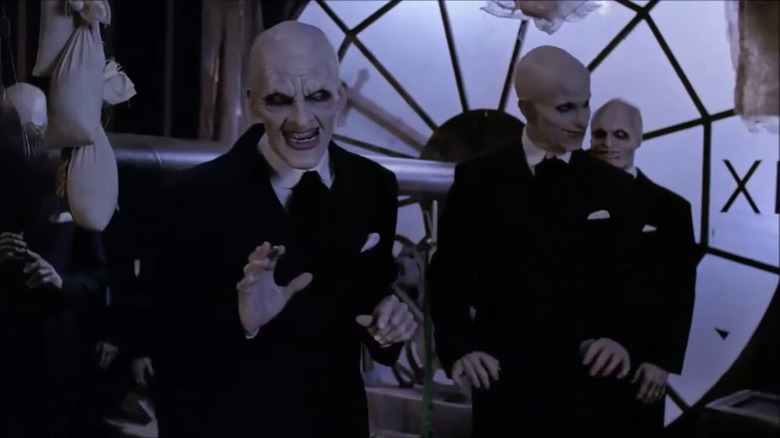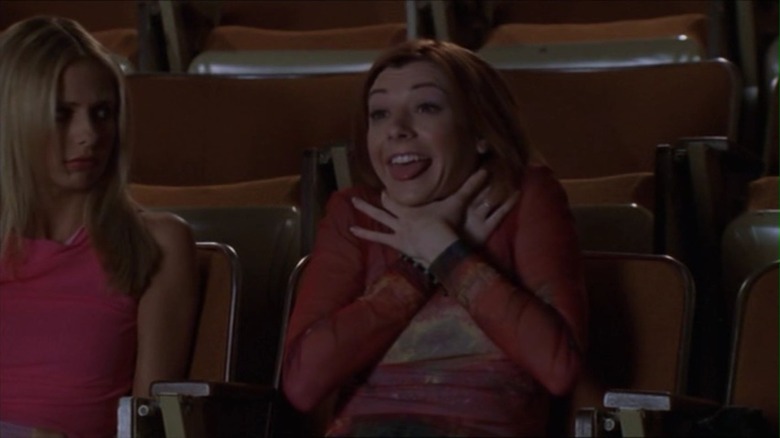Network Execs Were Wary About Buffy The Vampire Slayer's Most Daring Episode
We may receive a commission on purchases made from links.
"Buffy the Vampire Slayer" aired a lot of experimental episodes over the course of the show, but few landed quite as well as season 4's "Hush." The episode starts off normal, but soon a bunch of ghouls called the Gentlemen decide to take away the entire town's ability to speak. For most of the episode after that, not a single line of dialogue is spoken. This gimmick could've easily been a dull disaster, but it instead turned out to be one of the creepiest, most fascinating episodes in the whole series.
For Whedon, the episode was partially motivated by his desire to prove that he was more than his dialogue. Whedon was (and is) famous for his clever, fast-paced dialogue, the type that doesn't attempt to capture how real people talk but to impress us with its wordplay and make the characters seem cool and self-aware. This style grew beyond Whedon, to the point where his general style seems to have become the default setting for most comic book movies, for better or worse. By taking the most famous aspect of his writing away from himself, Whedon was forced to focus on purely visual storytelling.
But although he did indeed prove that he could pull the gimmick off, the network certainly had their doubts. "I heard the network was kind of skittish to accept this," recalled Doug Jones, who played the lead Gentleman, in a 2014 oral history for the episode. "They're thinking, 'Capture your audience. Keep them from flipping the channel. Inundate them with visual and audio stimulation so they don't leave us.' When you take the audio away, it's like, 'Oh, dear!'"
More engaging than you'd think
It's easy to imagine the network's uneasiness with the concept, especially considering how fast-paced and overstimulating most mainstream media has gotten. Today, network execs are literally pushing showrunners to create "second-screen" TV shows, designed so viewers can still follow the plot even as they're looking at their phones/laptops. Under that mindset, a dialogue-free episode is an obvious no-go.
But despite that growing mindset from network execs, their concerns over "Hush" were unfounded. Not only was the episode a critical success, but in the past twenty-four years, plenty of other shows have done the same gimmick with undeniably great results. From "BoJack Horseman" to "Mr. Robot" to "Only Murders in the Building" to the "X-Files" reprisal, it's turned out that audiences really love an episode that gives them no choice but to sit up and pay attention. It's a format that forces viewers to read into the characters' facial expressions and body language, to make their own inferences in a way that dialogue can often unburden them from doing. It discourages passive viewing, and in response, audiences tend to rise to the challenge.
For Whedon, one of the reasons he thinks the episode captured viewers so well is that dialogue, as helpful as it is, is also surprisingly restrictive. "Language can interfere with communication because language limits," Whedon explained in the DVD audio commentary. "As soon as you say something, you've eliminated every other possibility of what you might be talking about." Removing dialogue meant forcing the characters to interact in ways that were more direct than they typically would, which made for some of the most honest, compelling character interactions the show had ever given us. Maybe TV shows should play with this gimmick more often.

